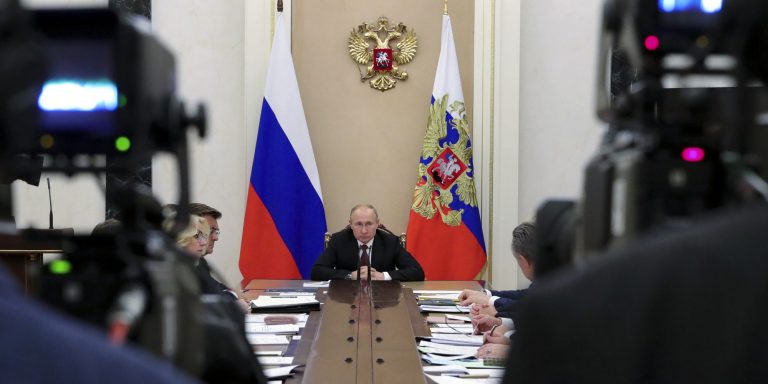INTELBRIEF
August 7, 2019
IntelBrief: Inoculation Efforts Against the Onslaught of Disinformation

- Given Russia’s relentless disinformation campaigns, several European countries have accelerated efforts to prepare their populations for this threat.
- While successful examples of promoting resilience to disinformation are rare, Finland, Sweden, and Denmark have made strides to help inoculate their populations.
- Given Russian meddling in the 2016 U.S. Presidential elections, American lawmakers should be looking abroad to discern best practices for how to prepare for a similar onslaught in the lead up to 2020.
- Unlike Scandinavian countries, differences in demographics, geography, and education—especially digital media literacy—suggests the U.S. faces greater obstacles in responding to the threat of Russian disinformation.
.
Russia is engaged in a series of campaigns to sow widespread confusion and discord through an endless stream of disinformation and deliberately misleading propaganda, leading to several European countries’ accelerated efforts to prepare their populations. And while successful examples of promoting resilience or resistance to disinformation are rare, Finland, Sweden, and Denmark have made strides to help inoculate their populations. Given successful Russian efforts to meddle in the 2016 U.S. Presidential elections, American lawmakers and government officials should be looking abroad to discern best practices and lessons learned for how to prepare for a similar onslaught in the lead up to 2020.
College students in Finland are educated on the Russian tactic of trolling and disinformation, which includes how to recognize images or videos that have been manipulated or distorted. Finland has claimed high levels of resilience against Russian disinformation efforts. Finland has good reason to be at the forefront of these efforts; as its much larger neighbor, Russia has long posed a threat to Helsinki. Finland may also be uniquely positioned to make headway on this matter, as its population is fairly homogenous, offering fewer demographic or cultural fault lines to exploit. Finland also boasts high levels of education and metrics measuring quality of life are among the highest in the world. Taken together, these factors, more than government efforts to promote resilience against disinformation, could well be responsible for Finnish resilience. For these reasons, it remains unclear the extent to which Finland's success could be replicated elsewhere, especially in a country like the United States.
Sweden is also allocating resources to deal with the threat of Russian disinformation. Stockholm is working to stand up a public authority responsible for countering disinformation and inoculating its population against malign influence. The stated purpose of the Psychological Defence Authority is to 'aid the population's defence capacities during peace time and its capacity to resist during war, ensure that factual public information can be quickly and effectively communicated even under disruptive conditions, as well as identify, analyze and confront influencing operations.' Sweden's efforts have primarily focused on raising awareness of disinformation, developing messages to counter manipulative efforts, and conducting vulnerability assessments for a range of relevant stakeholders and potentially affected entities. Denmark also put together a new initiative to strengthen the country's resilience against disinformation and outlined an eleven-point plan to help protect Danish society and democratic institutions. Copenhagen has recognized the importance of education and digital media literacy in helping its citizens recognize and rebuff Russian disinformation efforts.
The American public has proven exceedingly vulnerable to conspiracy theories, 'fake news' and 'alternative facts.' Americans are increasingly divided, and echo chambers reinforce pre-existing beliefs and reinforce tribalism. Few issues are immune to partisan politics, from climate change to immigration policy. The 2016 U.S elections revealed the scale of the problem, and there is little hope that the 2020 elections will be freer from influence. In fact, with an increase in political violence connected to white supremacy and radical right-wing extremism, the upcoming elections could be unique in the opportunities it affords U.S. adversaries, especially Russia, to exacerbate societal tensions through disinformation-fueled social media campaigns.
.
For tailored research and analysis, please contact: info@thesoufancenter.org